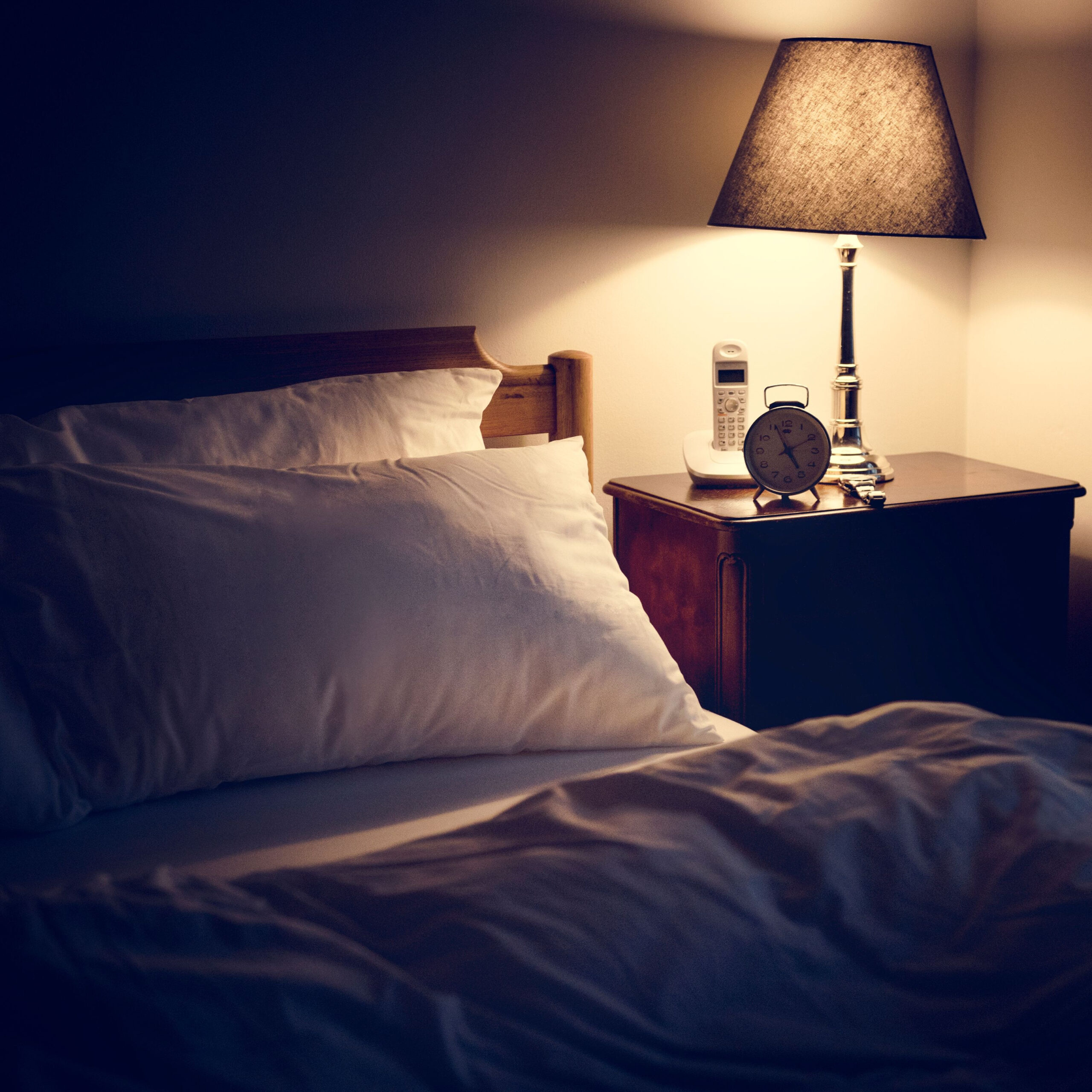
1. Have a consistent schedule
One of the most crucial steps to take towards better sleep is to establish a consistent bedtime and wake time. Although you may think that allowing yourself 6-8 hours to sleep each night is enough to be considered a good sleep schedule, science shows that consistently going to sleep and waking up at the same time can make all the difference in the quality of your sleep. Dr. Wu explains, "Going to bed and waking up at the same time each day will help regulate your circadian rhythm."
2. Get enough sunlight in the morning
In addition to waking up at the same time every day, it's important to pay attention to and regulate the amount of light you get throughout the day. Dr. Wu recommends making sure you get some sunlight early in the morning, but avoid it close to bedtime. "Light early in the day will reset your circadian rhythm, helping you feel sleepy at the right time that evening. But too much light in the evening can make it hard to drift off," he says.
3. Minimize blue light exposure
Blue light exposure is another factor to consider, as blue light from screens before bed can make it difficult to fall asleep. Dr. Wu recommends you "dim the lights and put on blue-light blocking glasses 90 minutes before bed, and use a low-powered red light night light if you wake up during the night to use the bathroom to avoid waking yourself up too much."
4. Do something relaxing and joyful before bed
In addition to going to sleep at the same time each night, pinning down a great wind-down routine is another helpful habit when it comes to sleeping well. After all, it can be extremely difficult to sleep with a cluttered mind–which is why incorporating joyful, relaxing activities into your nighttime routine can do wonders. "Things like doing relaxing yoga, taking a warm shower, reading feel-good books, and listening to calm music or sounds can help your mind disengage and allow you to settle down," Dr. Winter tells us.
5. Meditate in bed
One of the most relaxing activities you can add to your wind-down routine is some meditation. This can be especially helpful when you find yourself lying in bed and unable to fall asleep. "When all else fails, don't be afraid to rest and meditate in bed," Dr. Winter says. "Stop judging your success in bed by unconsciousness alone. Sometimes the secret to amazing sleep is learning to embrace your time awake in bed. Enjoying the calm, quiet time nestled under the covers can help you relax enough to fall asleep." We love that perspective! Overall, he says you shouldn’t treat your time spent awake in bed as a problem that needs to be solved: "Learning to enjoy being in bed makes most sleep problems instantly disappear."
6. Eat magnesium-rich foods
Your diet can also make a big difference in the quality of your sleep. One of the best things to do is eat magnesium-rich foods. "Magnesium can be helpful for better sleep because it enhances the activity of GABA, a neurotransmitter that calms the nervous system," explains Carlie Gasia, a Certified Sleep Science Coach at Sleepopolis. She highlights the role of magnesium in the production of melatonin, the hormone responsible for regulating sleep-wake cycles. Additionally, magnesium aids in muscle relaxation and stress reduction, further facilitating restful sleep. Some people turn to magnesium supplements in the pursuit of better sleep—but there are also plenty of ways to get magnesium straight from the foods you eat.
Gasia recommends incorporating nuts and seeds into your diet as they are high in magnesium and other sleep-promoting nutrients. "Nuts and seeds contain the amino acid tryptophan, which is the precursor of serotonin and melatonin, which contribute to better sleep," she notes. Got it!
Bottom line
Of course, it's important to remember that many factors can play into your ability to fall asleep and stay asleep. If you struggle with consistent insomnia, your best option is always to speak with a doctor in order to get to the root of the issue. However, trying out these expert-approved tips certainly won't hurt. Sleep well!


